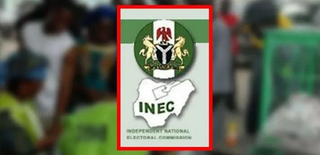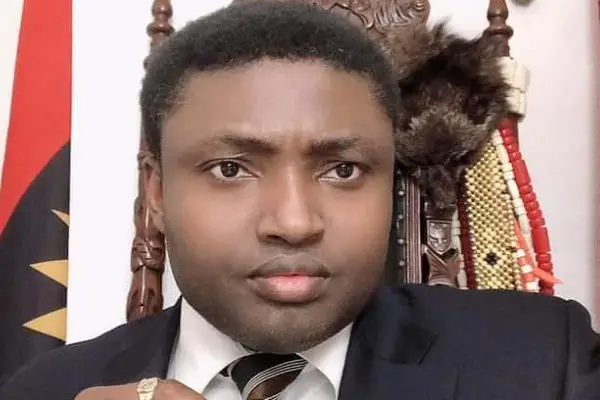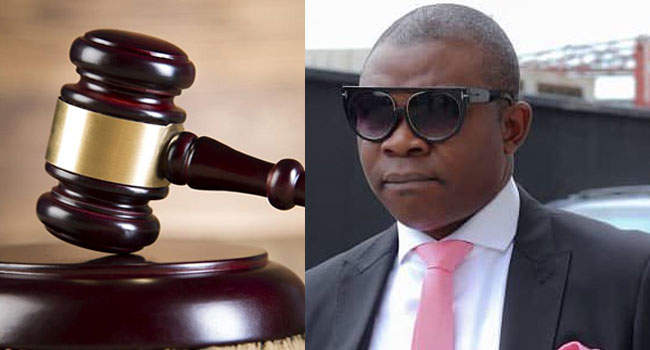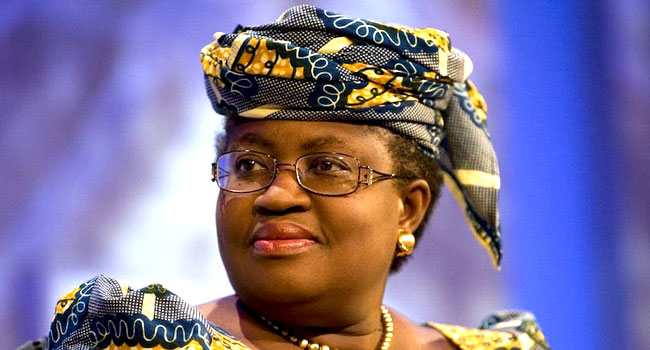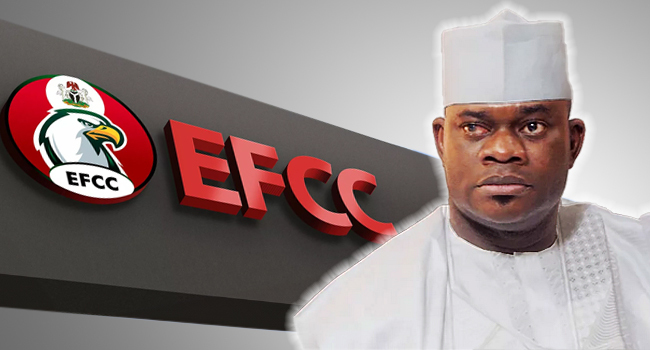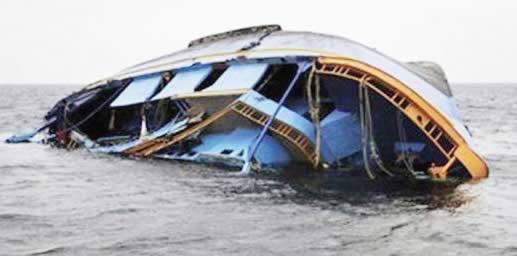DESPITE several attacks on its facilities in some parts of the country, the Independent National Electoral Commission, INEC, says it will not be deterred from conducting credible elections.
The 2023 general polls, the seventh democratic exercise since the return to civil rule in 1999 begins with the Presidential and National Assembly election on Saturday, February 25, and ends with Governorship and State Assembly elections on March 11.
The INEC Chairman, Professor Mahmood Yabuku, has repeatedly assured Nigerians that irrespective of the attacks on its offices across many states of the country, the commission will go ahead with the polls.
A survey stated that 79 per cent of registered voters have collected their Permanent Voters Cards.
Postponing polls
The INEC has deflected pressures mounted on it to postpone the general elections, especially over the Naira redesign policy and raging scarcity.
Already, the commission has declared that elections will not hold in 240 polling units spread across 28 states. Yakubu, who spoke at a meeting with leaders of political parties, said: “You may recall that in 2021, with your support and that of other critical stakeholders, the Commission successfully expanded voter access to polling units 25 years after the last delimitation exercise in 1996. Consequently, the number of polling units increased from 119,973 to the current figure of 176,846.
“At previous meetings, we also briefed you on our efforts to redistribute voters to the polling units to avoid the congestion that made voting cumbersome in many of them nationwide. This requires the redistribution of voters to new polling units in proximate locations. Where they are separated by distance, this must be done after consultation with the voters. This has been done by our State offices nationwide.
“However, there are 240 polling units without registered voters spread across 28 states and the Federal Capital Territory FCT.
They range from one polling unit to 12 polling units in each state and the FCT, except Taraba and Imo states with 34 and 38 polling units respectively. No new registrants chose the polling units and no voters indicated interest to transfer to them during the last Continuous Voter Registration, CVR, mainly for security reasons. This means that no elections will hold in these polling units.”
Challenges before INEC
Despite its level of preparedness, the INEC, however, is facing challenges in its bid to conduct free, fair and credible elections.
Some of these challenges include the perceived hacking of the Bimodal Voter Accreditation System, BVAS; logistics, vote buying plots, underage voting and funding.
Concern over BVAS
As part of the electoral umpire’s preparations for the elections, it embarked on a mock accreditation using the BVAS.
While BVAS, according to some critics, is seen as the game changer, some hold the view that the system may be manipulated.
During its recent mock accreditation, some voters could not easily identify their polling units.
Irrespective of this hitch, the commission is optimistic that the polls will go on as planned.
Since the advent of democracy in 1999, INEC has continued to introduce technological interventions to make elections better from the era of manual processes
In 1999, voter registration, voting, result-collation, and transmission were done manually and the processes were manipulated by unscrupulous politicians.
It is noteworthy that these interventions have not been without challenges but the commission is undeterred from bringing about more advanced solutions which will outwit those determined to manipulate the system.
The commission later introduced the digitalized system to help the country’s electoral system.
Its determination to evolve the electoral system led to the introduction of the Electronic Voters Register, EVR, the Automatic Fingerprints Identification System, AFIS, the Smart Card Reader, SCR, and now BVAS.
Concerns have been raised as to whether or not the new technology could be hacked. One of the challenges faced in the electoral process is the irregularities that take place between the Polling Units, PUs and the result collation centres.
With erratic power supply and internet network, some have expressed concern that the BVAS might be affected.
However, the commission’s boss has confirmed that the BVAS machine works offline and does not rely on the internet to accredit voters on Election Day.
“It only needs a network for the transmission of results,” the INEC chairman said recently.
Logistics
One major hurdle the commission will have to face is the difficulties to move people and materials to different destinations.
There is no doubt that some terrains are difficult to navigate and these places pose challenges to INEC.
For instance, places in the riverine areas are not easy to reach.
In the past, some Ad hoc staff of the commission lost their lives while moving in difficult areas and terrains.
INEC may have to employ those who can swim for those places, as those who cannot swim will be afraid to go there.
Funding
The naira scarcity being experienced across the country is considered a threat to the polls but to avert the crisis, the chairman of the Commission met with the CBN governor, Mr Godwin Emefiele, over the naira policy.
Yakubu expressed concern about the policy and how it might affect the general elections if not managed.
He said some of the service providers, especially transporters, are required to be paid in cash and besides, experience has shown that emergencies do arise on Election Day, which could demand the use of cash by the Commission.
He, therefore, requested concessions regarding the naira redesign policy with specific reference to the limitations placed on cash withdrawals.
The concerns raised by the INEC boss were doused by the CBN governor, who assured that special arrangements would be made for the commission.
Violence
Another challenge before INEC is curbing violent attacks on supporters of political parties across the board which has resulted in the loss of lives in some cases.
Though the INEC boss has appealed to leaders of political parties, the menace is yet to abate.
The commission is, however, banking on the support of security agencies to curb violence before, during and after the elections.
In his appeal, Yakubu said: “Let me once again appeal to the Chairman and leaders of political parties to continue to call your candidates and supporters to order. I also call on the security, intelligence and law enforcement agencies to arrest, investigate and prosecute anyone involved in violent conduct, including incendiary statements capable of inciting a breach of the peace.”
Vote-buying
Money politics has become a menace in Nigeria and the country is yet to overcome this challenge as some politicians still buy votes. This is a problem for INEC.
Political pundits opine that vote-buying makes election results not to be the true reflection of voters’ choices and makes the wrong person win.
Perhaps, this made President Muhammadu Buhari in collaboration with the CBN Governor to come up with redesigning the N200, N500 and N1000 notes.
While the policy has been accepted by some Nigerians, especially the opposition political parties, the All Progressives Congress, APC, has vehemently kicked against the policy.
INEC is also banking on the policy to curb vote buying to its barest minimum on Election Day but politicians may devise other means to carry out such acts.
The general elections will, perhaps, be a litmus test for the commission if steps are not taken to address the challenges before it.
Pitfalls before INEC—Bewaji
Speaking on the possibility of INEC conducting free, fair and credible elections, the chairman, board of Trustees, Society of Legal Scholars, Dr Wunmi Bewaji, highlighted the pitfalls before the commission.
Bewaji, a legal practitioner, told Vanguard: “The major pitfall like you saw in the Osun governorship election is the human error in technology to which INEC did not pay attention to.”
While he alluded to the benefits of technology, he noted that there must be room for backup.
His words: “As I have always said, technology is good but then the human error factor has to be considered. We saw it in the State of Texas in the USA during its last elections where Dominion, the company that produced the voting machines was accused of colluding to rig the elections. Though that was never proved in the Osun election, despite the use of the celebrated BVAS, there was still over-voting. So, how did we arrive at over-voting when there was BVAS?
“I have not been enthusiastic about complete dependence on technology without an avenue for backroom audit, there must be a backup.
“I am happy to hear that INEC plans to first embark on verification. So, human error is a factor in the deployment of technology.
“Then, the issue of radicalisation, which I have always harped upon, needs to be looked into.
“When the electorates go to the polling booth and they are not sure that the person they voted for will be the winner but that the election will be decided by a panel of three or five people, it will erode the electoral system.
“You still have to address the issue of radicalisation of our electoral process.

